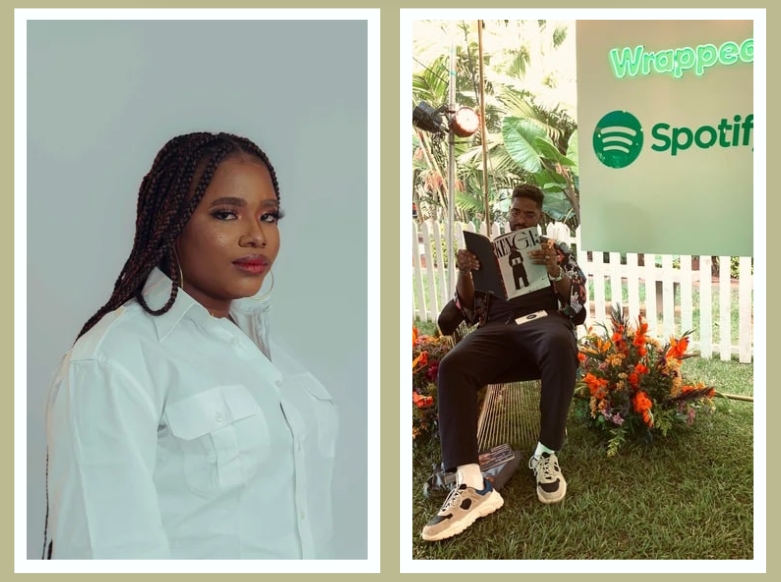- The Disruptor.news publication where the article was published has been this continued.
Writers across Africa no longer have to depend on institutional journalism to publish their work. They are creating independent platforms which are showcase nuanced stories about Africa that are mostly absent from mainstream publications.
From freelancing for online publications to adopting the system of contracting for freelance writing agencies in the West, African writers are successfully adopting the model developed by their counterparts in the Western world.
In Nigeria, a handful of professional writers are leveraging journalism’s intersection of business and storytelling. The ability to cover stories uncompromised by the constraints of a newsroom or the pressures of a rapid news cycle presents an attractive proposition for many journalists entering the creative economy in Africa. Anita Eboigbe and Arinze Obiezue, both independent publishers in Lagos, are redefining and expanding what it means to be a journalist and writer in Nigeria.
Arinze Obiezue was known for his writing on Medium and Substack, while Anita Eboigbe is a veteran of two different publications. They both drew from these experiences to start their own online and print platforms.
Obiezue was the managing editor for A Nasty Boy, Nigeria’s first LGBTQ fashion magazine. “I spent a lot of time doing more restructuring—something that already existed rather than actually creating my own thing,” he said. “I wanted to do something more creative; build something from scratch.” The entrepreneurial discomfort alongside the creative inspiration he felt during his time at A Nasty Boy led him to create Kenga , a print magazine coupled with online features, with Desmond Vincent. Kenga Media is a publication focused on telling the diverse stories of Gen Z in Africa.
“Without that discomfort-inspiration cocktail, I wouldn’t have felt the urge to go start my own thing.” Obiezue told Disruptor.
Anita Eboigbe combined her experience of working in the entertainment and lifestyle industry at the News Agency of Nigeria, a federal reporting agency in Nigeria, with being the data editor at HumAngle, a media platform that covers conflict, humanitarian and development issues in Africa, to launch a publication that centers on both data and entertainment.
Eboigbe chose to cover the Nigerian Film Industry also known as Nollywood, in her Substack publication called Inside Nollywood. While Nollywood has been recognized as one of the top film industries in the world, until Eboigbe’s Substack newsletter, there were no publications covering it on a granular level.
“Writers were writing reviews, but when it came to conversations about who’s behind the scenes or who is in front of the scenes, the audience and consumers didn’t know who worked in the industry.”, Anita says.
She joined forces with her co-founder, Daniel Okechukwu, a Nigerian journalist, to create Inside Nollywood, an online publication producing data and statistics driven articles that documents the intricacies of Nigerian cinema. Their vision is to improve the quality of conversations about the African film industry. The online publication experiments with data storytelling and entertainment news and information. Using numbers, they’ve also produced a report and analyses on how film business is done in the Nigerian industry.
“I used to write stories about war and conflicts at HumAngle, but I’m now covering stories about film,” Eboigbe says. “At the end of the day, stories are stories. And if you’re a storyteller, it’s all about building, and ultimately that’s what I love doing.”
Finding Their Voice and Audience
Arinze Obiezue’s why for starting his publication, Kenga, centers on an under-documented demographic in Africa: Gen Z, where he’s a member.
While writing a paper during his undergraduate studies, it bothered him that so little research had been done on Gen Z in Africa. “We don’t really understand who Africa’s Gen Z is beyond the broad generalizations that are promoted by West-centric Gen Z research,” he says. Obiezue extended his study from an academic standpoint to a commercial one.
“The early adopters of digital products in Africa are Gen Z’s.” he says. “So if we do not understand these people as consumers and a cultural group, how can we successfully build products and services that resonate with them? By 2030, the economic power of Gen Z would supersede that of millennials. So it’s important first, to understand them, and create these insights for the future of the continent.”
Obiezue wanted to create something that captured the nuance of African Gen Z culture; something relevant to the global audience, but also relevant to brands trying to reach Gen Z’s in Africa.
“One of the things we want you to feel as you read these stories is as though we’re telling you as though you’re a fly on the wall,” Eboigbe says. “There’s warmth in the way we write, and that’s something very key because you can’t depersonalize something that is so personal to people.” Inside Nollywood features a profile entitled Kayode Kasum wants to hug you with film – This profile emphasizes the significance of music in Kasum’s work and his belief that it evokes different emotions in people. He also expresses his deep love for filmmaking and his desire to create films that bring happiness to audiences – “and that’s exactly how we want to capture the soul of the industry “
“We also realized that the ways that film was written about were not inclusive,” Eboigbe says. “You had to be an intellectual elite just to understand the review. The exploration of these topics should be simple enough for everybody to get into.”
In addition to what she perceived as weak coverage of major industries, Eboigbe noticed there was no professional pipeline for becoming a film journalist.
“In order to put other people’s work to account, you have to yourself get trained and know what you’re talking about,” she says. “One of the things that helps breed respect in certain areas is the existence of a pipeline.”
So she went ahead and created one. The partners started a Film Journalism Fellowship, a rigorous three-month process of learning from players in the African cinema space and subsequently producing their own work. Eboigbe wants writers to get into this space without treating it like a hobby. “If you’re going to improve the conversation, the quality of conversation in the space, you have to also improve the quality of people having those conversations.”
The Kenga team is experimenting with a lot of distribution channels in order to tap into different communities. They’ve learned in recent months that text content does not work for Gen Z. The content, Obiezue says, has to include a visual component.
“A lot of the publications today are text first. We’re trying to think about how to redefine that. How can you tell stories with visuals, right? And it doesn’t even need to be a video. It can just be an art piece or an emoji that conveys a message,” says Obiezue.
They chose to print physical copies because we wanted to leverage the nostalgia of Gen Z’s who grew up with magazines and for NFTs, we want to leverage new technology.
“This is an opportunity for us to experiment and see what works and what doesn’t. I’d rather we fail fast at things and realize them at the beginning. We take note of what our audience enjoys, and then now start to optimize for those things,” Arinze says
It’s Effect On Their Personal Lives
Aside from how these writers are disrupting their industries, these new ventures have had a notable effect on their personal lives. They’ve learned to step out of their comfort zones.
Arinze says he’s become less risk averse, “There’s a bunch of risks that I’ve had to take that I would not have in the corporate world..”
Eboigbe says she’s had to be a bit less introverted than she usually is. “I am very introverted. Building Inside Nollywood has made me talk more than I would like, especially online.” she says, “It’s not possible when writing a newsletter in this industry. You hold regular conversations with filmmakers even before the films come out”
Africa needs thoughtful African storytellers who are invested in exploring historical and current events through Africans’ eyes, not just emulating Western narratives.



